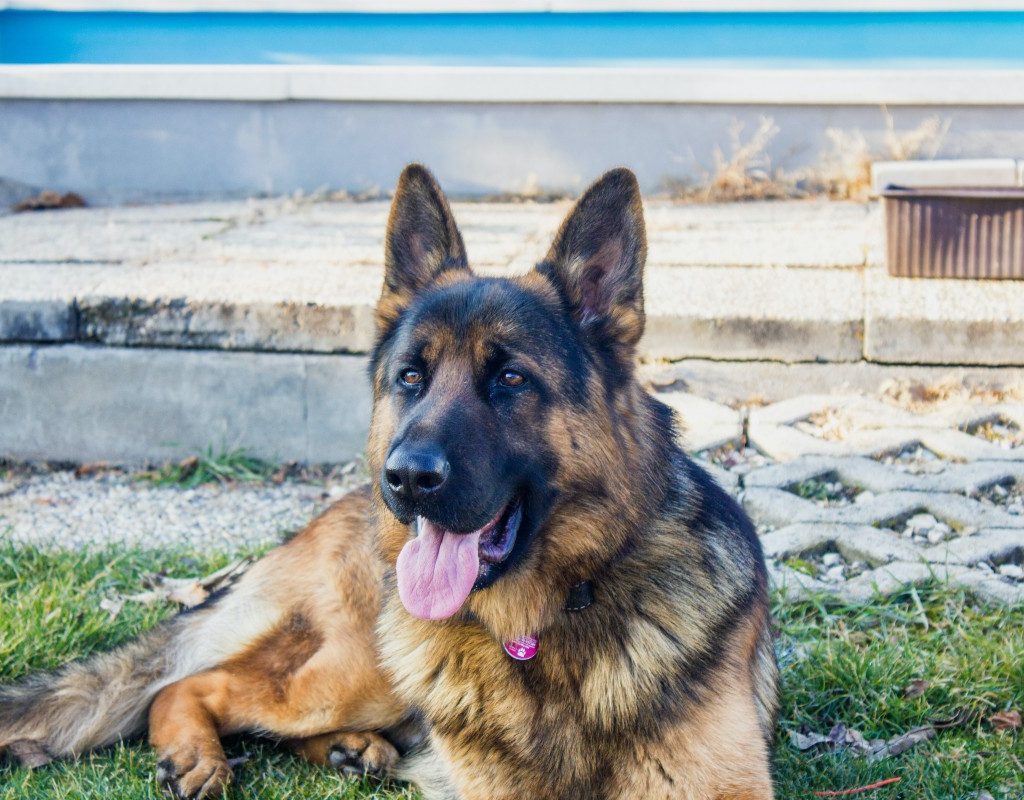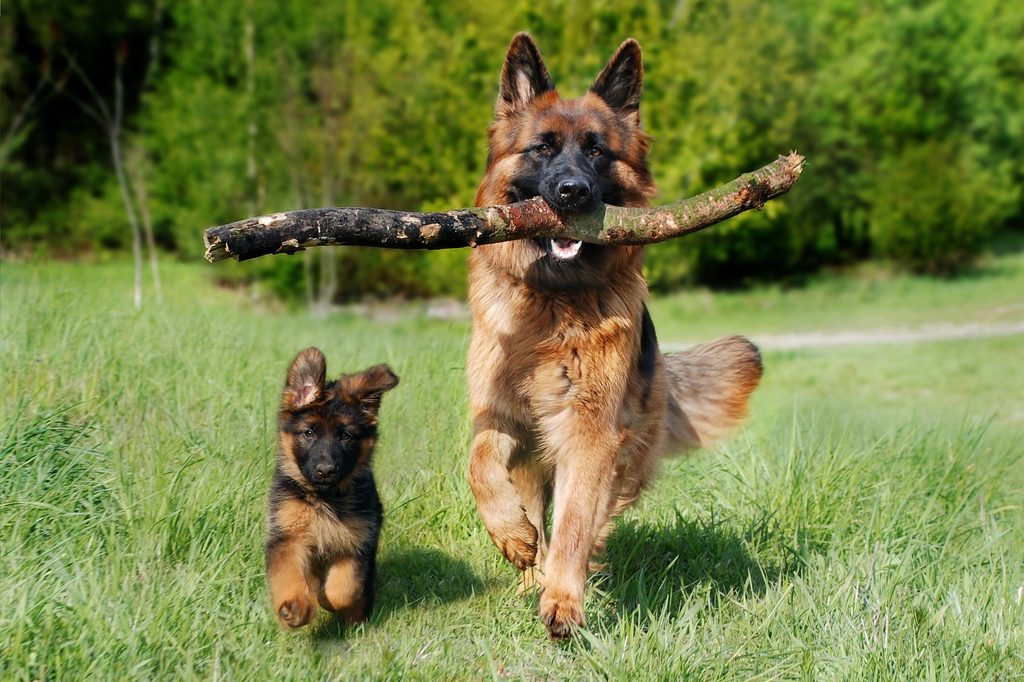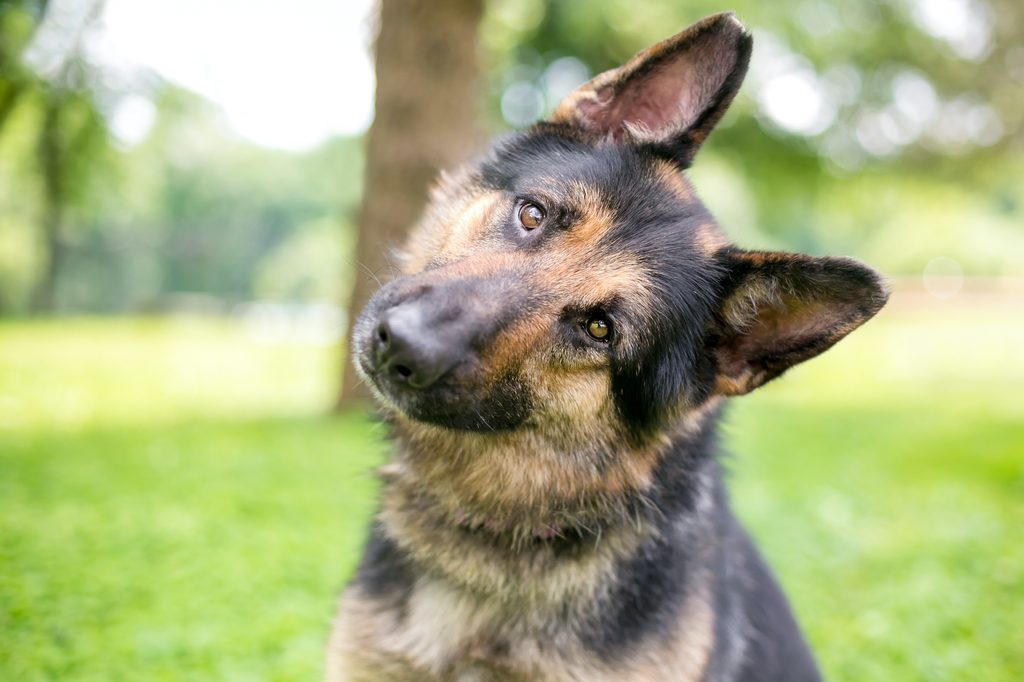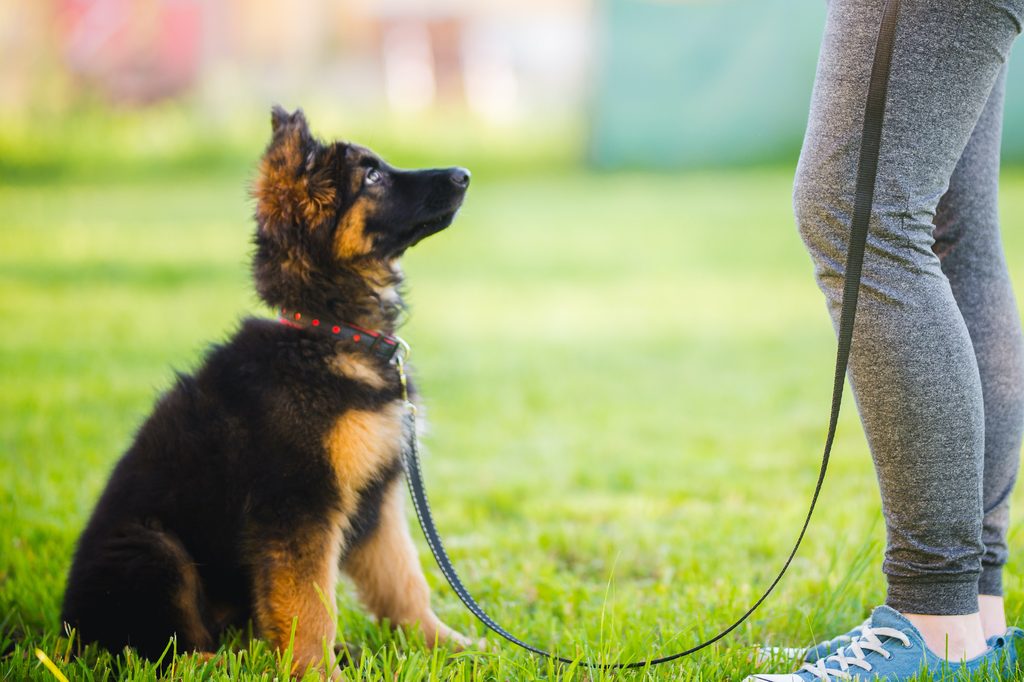
German shepherds are one of the larger dog breeds — females are typically around 50 to 70 pounds and males can go up to 90 pounds. However, these lovable pups are truly gentle giants. They’re affectionate and make good family dogs. They’re also whip-smart, adaptable, and highly trainable. For these reasons, German shepherds are often working dogs and heroes who serve as first responders, military members, and service animals.
Your German shepherd may not receive any medals of honor, but they’re certainly the top dog in your book. Understandably, you can’t imagine life without your German shepherd. Unfortunately, this breed doesn’t live as long as some other popular ones. It’s a tough reality. Knowing it can help you give your dog the best life possible, though.
Let’s dig into the German shepherd’s lifespan and how to keep them healthy for as long as you can.

What is the average German shepherd lifespan?
According to the American Kennel Club, German shepherds typically live 7 to 10 years. To put that in perspective, the average lifespan of a dog is 10 to 13 years. Chihuahuas typically live 15 to 17 years, Biewer terriers’ lifespan is about 16 years, and Pyrenean shepherds can stick around until they are nearly 20 years old.

Is 10 years old for a German shepherd?

Common German shepherd health issues
It may not seem fair that German shepherds don’t live as long, but there are some reasons. For one, long-lived breeds are generally smaller than the German shepherd. Smaller dogs tend to live longer and are less likely to die from cancer than their larger canine counterparts. For example, Pyrenean shepherds, with the longest average lifespan, typically weigh 15 to 30 pounds, considerably less than a German shepherd.
German shepherds are also susceptible to some conditions and issues that may impact their lifespan and overall well-being, including:
- Otitis externa (an infection in the outer ear canal)
- Obesity
- Bloat
- Dental disease
- Heart disease
- Musculoskeletal disorders
- Blood clotting
- Inability to stand
According to one U.K. study, the last two — musculoskeletal disorders and an inability to stand — were the two most common causes of death.

How to keep your German shepherd healthy and happy
You can’t protect your German shepherd from everything; despite your best efforts. Some conditions are hereditary, and aging is a fact of life. However, there are some steps you can take to help your German shepherd live the most fulfilled and healthiest life possible.
Exercise regularly
Physical activity is crucial to weight management, especially for a breed prone to obesity like the German shepherd. It may also help reduce the risk of heart disease. The amount of exercise will vary based on your specific German shepherd, but they may need several hours. There are many ways to help your pup get physical activity, including:
- Long walks
- Runs together
- Agility courses
- Puzzle toys
- Games of fetch
- Opportunities to swim in safe lakes or pools
Diet
You’ll want to give your German shepherd a well-balanced, AAFCO-approved dog food. Consult with your vet on how much and how often to feed your German shepherd. If you’re getting your German shepherd as a puppy, vets suggest feeding them growth food for large breeds. The food is intended to slow their growth rate, but they’ll still reach the standard size for their breed. It can reduce the risk of hip dyslexia later in life.
Vet visits and vaccines
Sometimes, early intervention can lead to better outcomes, so regular vet visits are critical. Also, some conditions are preventable, such as rabies and heartworm. Monthly prevention and staying up-to-date with shots will help mitigate unnecessary diseases.
Ear cleaning
German shepherds are prone to ear infections. Weekly cleanings can eliminate build-up and bacteria that can lead to inflammation and infections.
Dental care
Dental disease can affect a dog’s eating habits and just be painful overall. Brushing at least once daily for a minute is the best way to reduce bacteria in the mouth, vets say.

Final thoughts on German shepherds
German shepherds are loyal, lovable, and trainable. Some go into service gigs by becoming members of the military or guide dogs. Others are simply companions — and that’s certainly good enough. Unfortunately, these gentle giants don’t live as long as other breeds. The average German shepherd lifespan is 7 to 10 years, which is shorter than smaller breeds. German shepherds are more susceptible to musculoskeletal disorders.
They can also become obese. Generally, larger breeds are more prone to cancer than smaller breeds. Feeding your dog a healthy diet and getting plenty of exercise can help reduce health risks. The good news? German shepherds make great running and swimming buddies. Other to-dos include regular check-ups with the vet, weekly ear cleanings, and brushing teeth daily.




